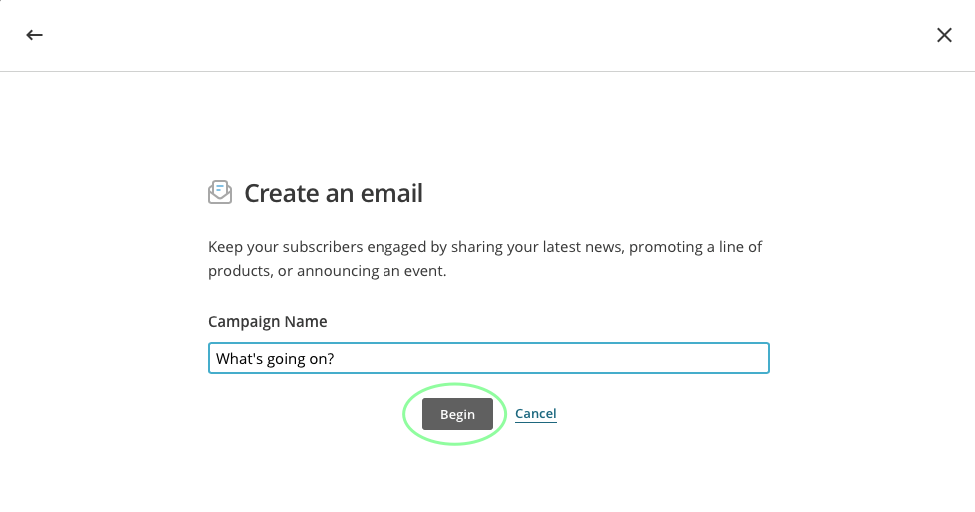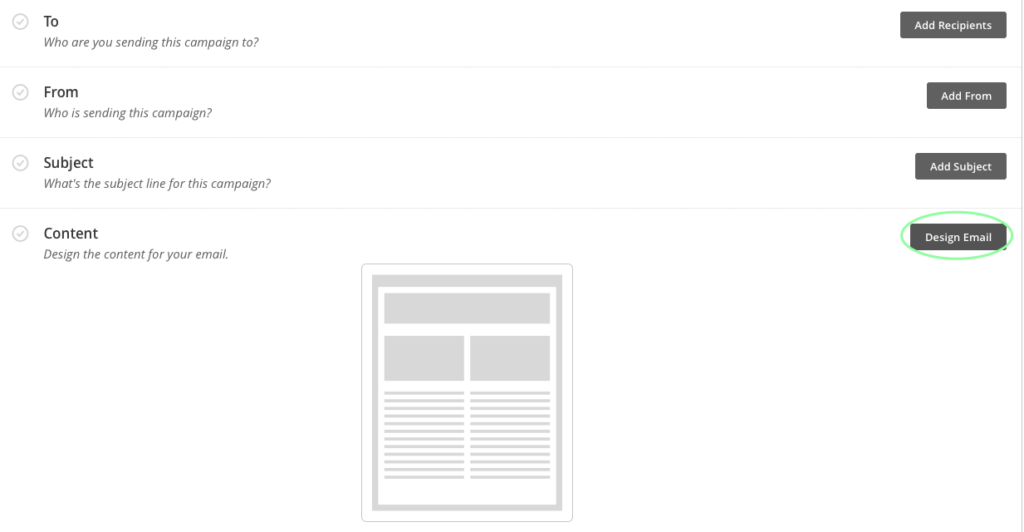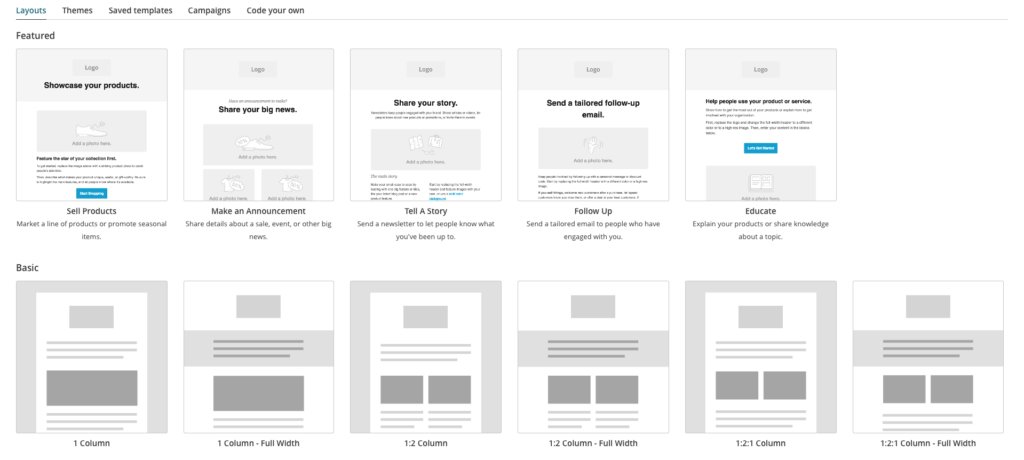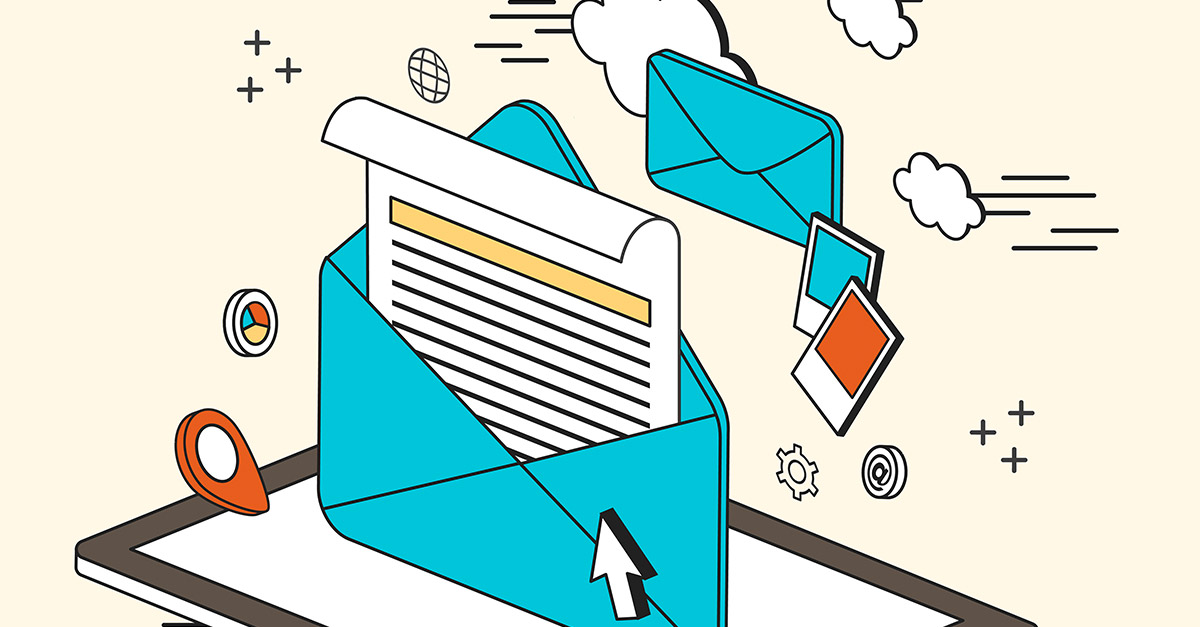Here is your go-to guide when you are ready to design your first email in MailChimp.
Why MailChimp?
We love MailChimp. It’s a great application that allows for different email marketing possibilities. One of the main selling features is that it has so many design options.
Reasons you want to send email
Identifying the why for your email campaign will impact the design. Here are just a few reasons that you may be contacting customers.
[ccc_list id=”reasons”]
Benefits of email marketing
[ccc_list id=”benefits”]
How to design your first template
Since your email marketing campaign is an extension of your company making sure it reflects your brand’s image is essential. That’s where this tutorial will help you out.
Step 1:
Log in and select you will select “Build my first email.”

Step 2:
Type an identifying “Campaign Name”, this is not the subject line seen by recipients, and select “Begin.”

Step 3:
Select “Design Email,” and now it’s time to design. 
Design options:
MailChimp offers different options depending on how much you want to do yourself. The featured templates are for when you know the purpose of your email and have your content, but aren’t sure how to lay it all out.
The Basic option is if you have the content, purpose, and vision for what you want it to look like. By using the drag-and-drop components, to create your can create own template that best represents your brand.

We could all jump down the rabbit hole of what makes one design work and others flop, but that will have to be another day. For now, we are going to select a basic template and talk about the different pieces and how to edit those to reflect your brand.
Page Design tab breakdown:
The page design tab will allow you to format the primary features of your email.








You will be able to do the majority of your design edits just within this first tab. As you move to the different content boxes, you may want to make changes.
Within each content box, the second tab will also allow you to make design changes. Once that item is formatted the way you want, you can select “Apply to all existing” at the bottom and it will update your current template.
It’s easy to get lost in the weeds when you dive into creating an email template. Keeping the purpose of the email top of mind with all design decisions will help you to stay focused and allow you to communicate effectively to your customers.
[ccc_inline_callout title=”Want help with your email marketing?” content=”Beginning your first email campaign takes time and research, but we’ve been doing it for a while! Let us help you.”]

